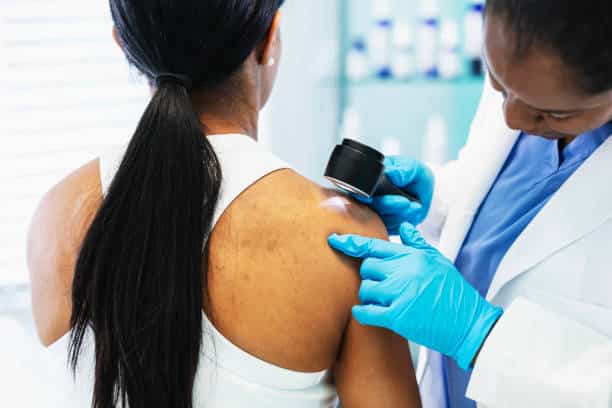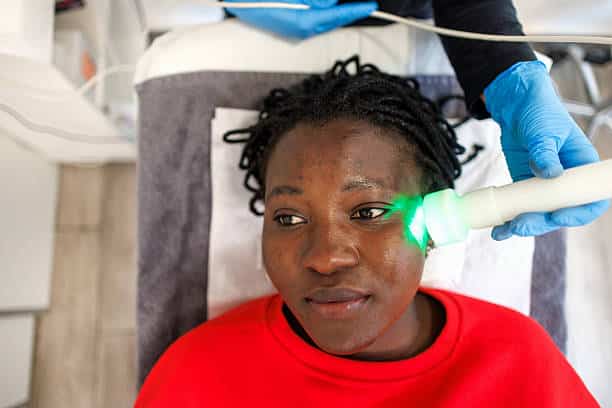
Imagine waking up every day with itchy, painful patches of red, scaly skin—and never knowing when they’ll get better or worse. For millions of people, this isn’t just a bad skin day—it’s psoriasis, a chronic autoimmune condition that affects far more than appearance. With its unpredictable flare-ups and emotional toll, psoriasis can interfere with daily life, relationships, and self-esteem.
In this article, we’ll explore what psoriasis is, what causes it, how it’s treated, and what new research is revealing about this often misunderstood condition. Whether you’re newly diagnosed or seeking to support someone living with it, understanding psoriasis is the first step toward better care—and better quality of life.
What Is Psoriasis?
Psoriasis is a chronic (long-lasting) skin disorder marked by scaling and inflammation, affecting approximately 2 to 2.6 percent of the U.S. population—or about 5.8 to 7.5 million people. Although it can appear at any age, it most commonly develops in adults and affects males and females equally.
You May Also Like
The disease occurs when skin cells rise rapidly from their origin below the skin’s surface and accumulate before they fully mature. Typically, this skin cell turnover process takes about a month, but in psoriasis, it can happen in just a few days. As a result, psoriasis typically manifests as thick, red, inflamed patches of skin covered with silvery scales.
These patches, often referred to as plaques, are usually itchy or painful. They commonly appear on the elbows, knees, legs, scalp, lower back, face, palms, and soles of the feet—but can develop anywhere on the body. Psoriasis can also affect the fingernails, toenails, and soft tissues of the genitals and mouth.
In some cases, the skin around joints may crack. Additionally, about 1 million people with psoriasis experience joint inflammation that leads to arthritis-like symptoms, a condition known as psoriatic arthritis.
You May Also Like
How Does Psoriasis Affect Quality of Life?
Psoriasis can significantly impact a person’s physical and emotional well-being. Persistent itching and pain may interfere with basic activities such as self-care, walking, or sleeping. Plaques on the hands or feet can limit occupational capabilities, recreational activities, and caregiving responsibilities.
The burden of ongoing medical care is not only costly but can also disrupt work or school schedules. People with moderate to severe psoriasis often report low self-esteem, body image issues, and social anxiety due to their appearance. These emotional challenges may lead to depression and social withdrawal.
RELATED: 5 Psoriasis Treatments Black Sufferers Should Avoid
What Causes Psoriasis?
Psoriasis is an immune-mediated condition primarily involving T cells, a type of white blood cell responsible for defending the body against infections. In psoriasis, T cells are mistakenly activated and become hyperactive, setting off a chain of immune responses that accelerate skin cell production and inflammation.
Genetics plays a role: about one-third of people with psoriasis have a family history of the condition. Researchers have identified specific genes associated with psoriasis, highlighting the hereditary component.
Flare-ups may be triggered by a variety of external factors, including:
-
Infections (especially strep throat)
-
Stress
-
Cold, dry climates
-
Certain medications (such as lithium and beta-blockers)

How Is Psoriasis Diagnosed?
Diagnosing psoriasis can be challenging because it often resembles other skin conditions. A dermatologist may need to examine a small skin biopsy under a microscope to confirm the diagnosis.
There are several types of psoriasis, including:
-
Plaque Psoriasis: The most common type, characterized by raised, red lesions with silvery scales.
-
Guttate Psoriasis: Small, drop-shaped spots typically appearing on the trunk, limbs, and scalp, often triggered by upper respiratory infections.
-
Pustular Psoriasis: Blisters filled with noninfectious pus, often brought on by stress, infections, or medications.
-
Inverse Psoriasis: Smooth, bright red patches in skin folds (e.g., under breasts, around genitals, or in armpits), aggravated by friction and sweat.
-
Erythrodermic Psoriasis: A severe form involving widespread redness and shedding of the skin, possibly caused by sunburn, medications, or uncontrolled psoriasis.
-
Psoriatic Arthritis: Joint inflammation occurring in patients with, or who later develop, psoriasis.
RELATED: 6 Psoriasis Self-Assessment Tools Black People Need to Know About

How Is Psoriasis Treated?
Treatment for psoriasis is tailored based on the severity of the disease, the type of psoriasis, and the patient’s response to previous therapies. Doctors often follow a “1-2-3” treatment approach:
-
Topical treatments: Applied directly to the skin.
-
Phototherapy: Exposure to ultraviolet light.
-
Systemic therapy: Oral or injected medications that target the immune system.
Over time, treatments may lose effectiveness, particularly topical corticosteroids, which can lead to skin thinning and other side effects. Because patient response varies, treatment often requires trial and error, and therapies may be rotated every 12 to 24 months.
Topical Treatments
Applied directly to the skin, topical therapies are often the first step in treatment. These include:
-
Corticosteroids: These reduce inflammation, slow down skin cell turnover, and suppress immune activity. Available in various strengths, they are usually applied twice daily. Potent corticosteroids may be used for stubborn plaques or areas with limited skin involvement. Milder preparations are preferred for sensitive areas like the face or genitals. Long-term use should be monitored to avoid side effects such as thinning skin or resistance.
-
Calcipotriene: A synthetic form of vitamin D3
-
Calcipotriene: This topical medication is a synthetic form of vitamin D3. It works by slowing the rapid growth of skin cells, helping to flatten plaques and reduce scaling. Calcipotriene is often used in combination with corticosteroids to enhance effectiveness and reduce irritation. It may cause mild skin irritation, especially on the face or in skin folds.
-
Retinoids: Derived from vitamin A, topical retinoids (such as tazarotene) help normalize DNA activity in skin cells and reduce inflammation. They may cause redness and peeling, so they are typically used with moisturizers or corticosteroids to reduce irritation.
-
Coal Tar: One of the oldest treatments for psoriasis, coal tar reduces scaling, itching, and inflammation. It is available in shampoos, creams, and bath additives, though its strong odor and potential to stain clothing and bedding can be drawbacks for some users.
-
Anthralin: This medication helps to normalize DNA activity in skin cells and reduce inflammation. It is usually applied for short periods and then washed off to minimize skin irritation and staining.
-
Bath Solutions and Moisturizers: While not curative, these treatments can soothe the skin and reduce scaling. They are most effective when used in conjunction with stronger medications.
Phototherapy
Also known as light therapy, phototherapy exposes the skin to ultraviolet (UV) light under medical supervision. It can be effective for moderate to severe cases of psoriasis and includes several options:
-
UVB Phototherapy: Uses narrowband UVB light to slow the growth of affected skin cells. Treatment is typically administered several times per week.
-
PUVA (Psoralen + UVA): Combines a drug called psoralen with UVA light to increase the skin’s sensitivity to light. This method is often used for more severe cases but can increase the risk of skin aging and skin cancer.
-
Excimer Laser: Targets smaller patches of psoriasis with concentrated UVB light, which minimizes exposure to surrounding healthy skin.
Systemic Treatments
Systemic treatments are used when topical treatments and phototherapy are insufficient. These medications affect the whole body and are typically reserved for moderate to severe psoriasis:
-
Methotrexate: Slows the production of skin cells and suppresses the immune system. Long-term use requires monitoring for liver toxicity and other side effects.
-
Cyclosporine: Suppresses the immune system and is effective for severe, disabling psoriasis. However, it can raise blood pressure and impair kidney function, so it’s used for limited durations.
-
Oral Retinoids: Such as acitretin, are vitamin A derivatives that can reduce skin cell production. These are not suitable for pregnant women due to the risk of birth defects.
-
Biologics: These targeted therapies block specific immune system pathways involved in psoriasis. Examples include adalimumab, etanercept, infliximab, ustekinumab, and newer agents like secukinumab and ixekizumab. Biologics are typically administered by injection and are considered effective but can be expensive and may increase infection risk.
What Are Some Promising Areas of Psoriasis Research?
Researchers are exploring numerous avenues to better understand and treat psoriasis:
-
Genetic studies continue to identify specific genes and biological markers that contribute to psoriasis, which could lead to more personalized treatments.
-
Immunology research is helping to uncover how different parts of the immune system trigger psoriasis flare-ups.
-
New biologic agents and small molecule inhibitors are being tested to provide safer and more effective long-term treatment options.
-
Non-invasive imaging techniques are being developed to help diagnose and monitor the disease more accurately.
-
Lifestyle interventions, such as diet, exercise, and stress management, are being studied to determine their role in reducing symptoms and improving quality of life.
RELATED: 10 Misconceptions About Psoriasis & Black Skin
Where Can People Find More Information About Psoriasis?
There are several trusted sources for information, support, and updates on psoriasis, including:
These organizations offer educational materials, treatment guides, clinical trial information, and community support for people living with psoriasis.








